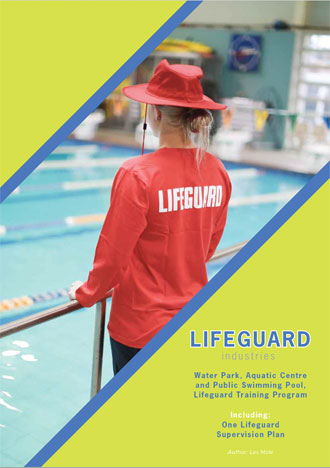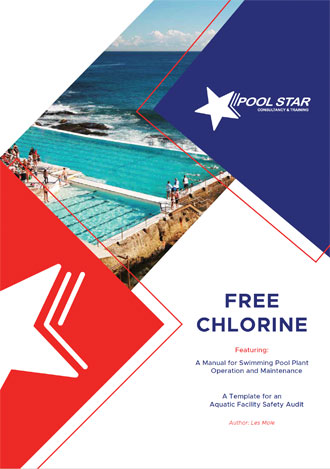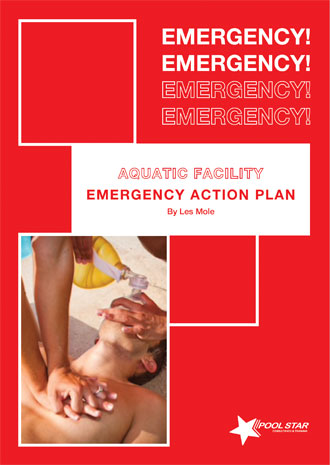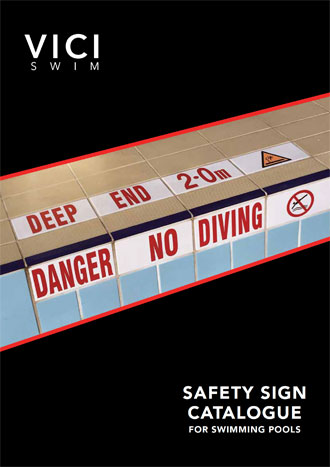Free Chlorine
A Note From the Author
Managing a public swimming pool brings with it a huge responsibility. This workbook provides an introduction for people to begin to understand the complex nature of this type of business.
Often the skills required to run a safe, healthy aquatic centre are under-estimated.
To become truly efficient at operating a public swimming pool takes many, many hours of perseverance, patience, networking and learning. It is more like a trip of discovery, than a job.
Interested persons will be taking their first steps by immersing themselves in this manual. Always remember, there are no so-called ‘gurus’ in this industry. Swimming pool management is the epitome of “Life Long Learning”. It is all about solving problems. Some of the answers can be readily corrected, however others that should be resolved by the obvious, often require many hours of trial and error.
This manual will equip the reader with a tool box of ideas and experience that should at least give direction to effective aquatic facility management.
I strongly recommend that any person who is serious about operating a public facility, should attend a recognised training program in pool plant operation and management.....
< CLICK HERE TO DOWNLOAD A PART 1 OF "FREE CHLORINE" >
The book ‘Free Chlorine’ is a manual and workbook designed specifically for operators of public swimming pools.
Aquatic activities account for approximately 50% of all sport and recreation enjoyed around our island nation. At the 2000 Sydney Olympics we witnessed the 100th Gold Medal for Australia. Again approximately 50% of those gold medals came from aquatic sports.
Being able to survive in water is critical for populations worldwide, as it is one of the biggest accidental killers of children under the age of five years.
We have all been touched by stories of children drowning in eskies, bathtubs and back-yard swimming pools.
Who are the forgotten heroes that help us through this most critical age of our lives? Some may herald the local learn to swim teacher, and whilst they provide a face, the most significant ‘expert’ is certainly the person responsible for providing public swimming, that is both safe and hygienic.
This collection of experience is intended to help to educate those people who work around the clock to provide us with an environment, within which we live and grow. The information in this book is provided as an advisory resource. It is not intended to override any legislation, which may exist and/or be enacted, to regulate the operations of a public swimming pool. Pool operators should be aware that they may be liable for heavy penalties if they do not provide their customers with both a safe and healthy aquatic environment.
Pool Plant Operation and Maintenance is a highly eclectic field of employment, and this book brings together some of those heuristic skills, needed to operate a facility.
< CLICK HERE TO DOWNLOAD A PART 1 OF "FREE CHLORINE" >
Junior Lifeguard
Junior Lifeguard Manual
By Les Mole
The need for a Junior Lifeguard Program was first recognised by the Royal Life Saving Society in Queensland during 1995.
This initiative helps to promote the Swim and Survive Strand which has been delivered by the Society for many decades.
Youth development programs are becoming more of a priority for Organisations such as Royal life Saving and Australian children will prosper as a direct result of this initiative.
With the assistance of Board Member, Tom Sternfeldt, the project was initiated by Les Mole and a quality trainers manual was developed. Staff of the Society were all critically involved with the development and delivery of the project.
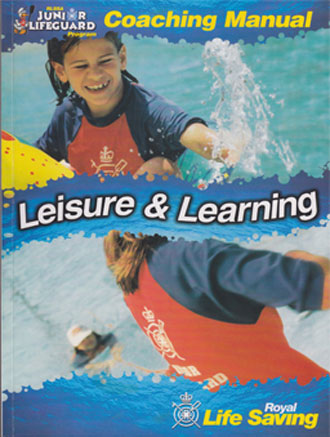
Other Publications
